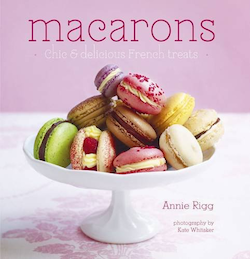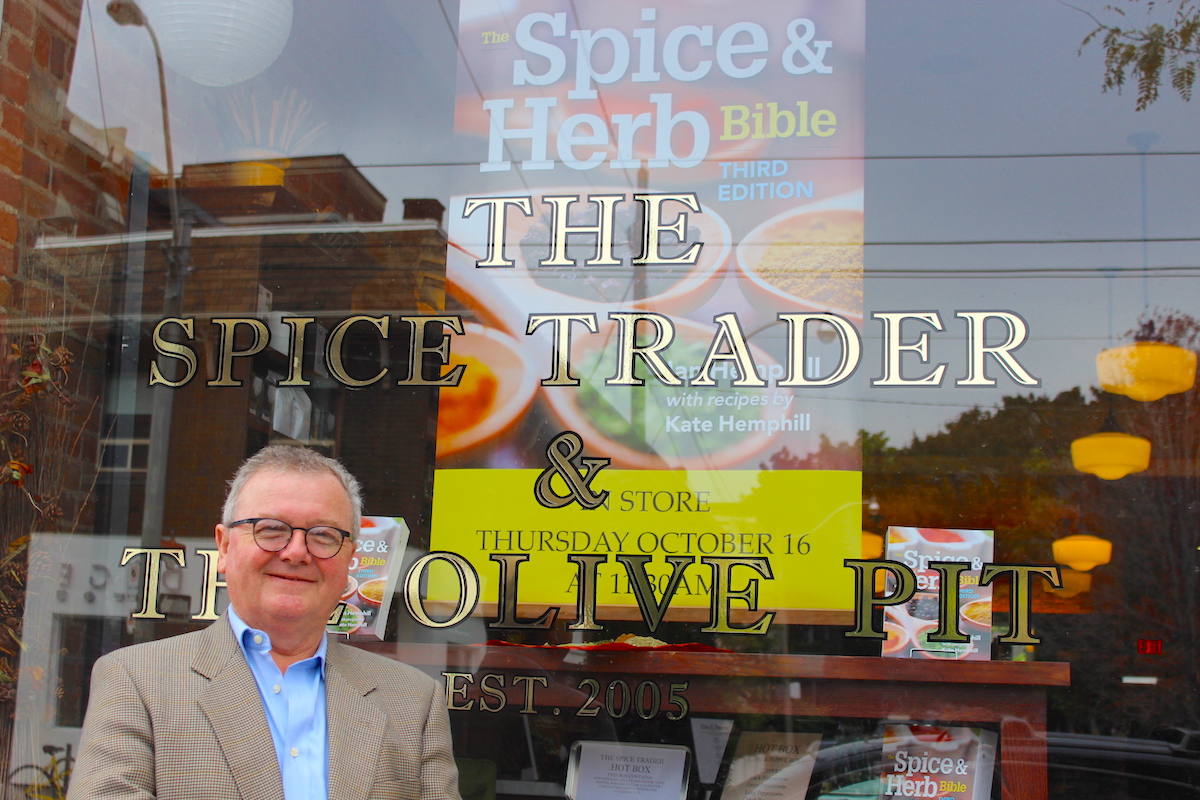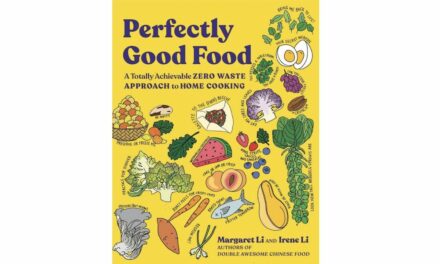by Dean Tudor
World Wine Watch‘s Dean Tudor returns with his lists of food and wine books in time for the 2011 holidays. Click here to see the whole series (to date). Look for these books at Good Food Fighter boutiques like The Cookbook Store or Good Egg. – Ed.
Stocking stuffers are at the top of everybody’s gift list: something affordable (under $10, up to $20) that can also double as a host gift, something small and lightweight. Most of the books here are paperbacks. And of course, they can stuff an adult stocking. Typical for food are…
200 CASSEROLES (Gibbs Smith, 2011, 208 pages, $12.99 US spiral bound) is by Stephanie Ashcraft and Janet Eyring, cookbook authors. This is a pretty basic collection of preps for easy oven, stovetop and slow cooker casseroles. The arrangement is by course (breakfast, mains, sides, etc.) with material on family dining and finicky kids and entertaining.
SMALL PLATES (Ryland, Peters & Small, 2011, 64 pages, $17.95 CAD) is by Annie Rigg. It is a small collection of international dishes, ranging from Spanish tapas to Middle East meze and Chinese dim sum, arranged by main ingredient such as meat, seafood and veggies. The first recipe in the book — creamy pancetta and onion tart — works for me.
NOW EAT THIS! 100 QUICK CALORIE CUTS (Grand Central Life and Style Books, $13.99 CAD soft covers) is by Rocco Dispirito, who had one of the first gourmet reality shows on American television. It is a flip book, detailing info on how you can cut your calorie count at both a restaurant and (on the other part of the book) at home – fifty tips for each.. It comes with the usual disclaimers about consulting a health professional before you attempt to lose weight, It’s a colourful book, full of good advice. The part about eating out is well worth the price (e.g., such basic stuff as saying “no” to desserts is effective and saves you money too).
MACARONS (Ryland, Peters & Small, 2011, 64 pages, $21.95 CAD) is by Annie Rigg. The 33 recipes here cover the basics, and then goes on to flavour combinations. There are chapters on fruits and flowers, coffee, caramel and chocolate, and nuts and spices.
WHO PUT THE DEVIL IN DEVILLED EGGS? (Skyhorse Publishing, 2011, 173 pages, $15.95 CAD) is really just short trivia about American food history. There are 48 foods here, such as lobster roll, baked Alaska, corn dog, iced tea, waffle, and mac and cheese. Author Ann Treistman situates the book in the 1950s, so there is stuff about Velveeta and Jell-o as well. Each food gets a short history, a photo, and a recipe or so. An interesting book that should appeal as a holiday read, short and light.
PRESERVES AND PICKLES (CICO Books, 2011, 64 pages, $21.95 CAD) is by Gloria Nicol who gives us a basic primer on preserving techniques and equipment. Emphasizing health and safety issues. Then she gives some 25 recipes for jams, jellies, curds, pickled relishes, and chutneys.
MAPLE SUGAR (Storey Publishing, 2011, 144 pages, $15.95 CAD soft covers) is by naturalist Tim Herd who gives us the “sap to syrup” story. It gives data about the various grades, the history of maple sugaring, how to identify the different kinds of maple trees from leaves or twigs, bark or flowers. There are reproductions of older advertisements. Plus, of course, 20 recipes for classics such as maple nut bread, maple-glazed salmon, and baked beans.
SEAFOOD FAVORITES (Gibbs Smith, 2011, 96 pages, $10 CAD soft covers) is from the Charleston Cooks! Maverick Kitchen store. It’s reflective of coastal South Carolina heritage and the Low Country region. There are dips, sauces, sides, plus a stream of preps for scallops, oysters, shrimp, snapper, flounder, grouper and others.
THE WILD BLUEBERRY COOK (Down East Books, 2011; distr. Nimbus, 82 pages, ISBN 867-0-89272-939-5, $14.95 US hard covers) is by Virginia M. Wright, senior writer at Down East magazine and cookbook author. She covers production, pie-eating contests, baking competitions, trivia, and an annual musical in Maine which celebrates its “official berry”. There are some interviews with growers, rakers, beekeepers, winemakers, and food scientists. Plus 16 recipes.
CAKE SIMPLE: RECIPES FOR BUNDT-STYLE CAKES (Chronicle Books, 2011, 132 pages, $19.95 US) is by Christie Matheson, a co-author of several cookbooks including Flour. There’s an endless variety of shapes and forms; more than 50 recipes here attest to that. There are the classics (brown sugar, lemon-poppy seed, mint chocolate), the gooey (gingerbread with orange-cream cheese frosting), the upscale (kumquat-coconut with tarragon), and mini-bundts (like a cupcake). A nice single-purpose book.
200 SOUPS (Gibbs Smith, 2011, 208 pages, $12.99 US spiral bound) is by Madge Baird, a cookbook editor and author. This is a basic collection using beans, lentils, vegetables, beef, chicken, pork, fish, potatoes, tomatoes, and pantry items. There are simple and there are complicated recipes here, a little bit of something for everyone.
THE HUMMINGBIRD BAKERY BAKING ORGANIZER (Ryland, Peters & Small, 2011, $19.95 CAD) is meant for recipe storage. You can file and store preps, as well as contacts and source lists. There are lined pages for recording your own recipes, divided into six tabbed and themes baking sections. Also, there are six baking recipes from The Hummingbird Bakery (London UK).
Other little books, for wine and beverages, include:
GREAT WHISKEYS (DK Books, 2011, 384 pages, $17 CAD) is a pocket-guide, although it is heavy because of the slick paper. The material was previously published in the longer “World Whiskey”. 500 of the “best” whiskies from around the world are covered, in an A – Z arrangement by name, regardless of country of origin. There are tasting notes, of course, with colour photos of the bottles. There are also whiskey tour notes for Islay, Speyside, Ireland, Japan, and Kentucky.
VINTAGE COCKTAILS (Skyhorse Publishing, 2011, 218 pages, $19.95 CAD) is a guide to retro cocktails for the home mixologist. Amanda Hallay, the compiler, is a cultural historian and fashion writer. Vintage cocktails are really the truly classics, and the M.O. here should be “know the classic recipes before you break the classic recipes”. For 90% of the action, you need go no further than your basic martini, grasshopper, Negroni, mint julep, Pimm’s cup, sidecar, daiquiri – and 57 more. Each comes with a thumbnail pop history. There’s the usual primer on cocktail making and how to deal with hangovers. And great retro style illustrations by David Wolfe.
GINGER BLISS AND THE VIOLET FIZZ (Harvard Common Press, 2011, 292 pages, $19.95 US) is by A. J. Rathbun, an award-winning spirits writer. It’s a nifty collection to 200 cocktails, all of which use new and classic liqueurs, such as Chartreuse, crème de cassis, St. Germain (elderflower), and PAMA (pomegranate). The drinks too range from new to old, such as the new Ginger Bliss and the older Violet Fizz from the book’s title. There’s the basic primer on cocktails plus a description of the newer liqueurs. A nice little book for those who like a kick of sugar/fruit in their drinks.
On to the wine annuals. The two global leaders are HUGH JOHNSON’S POCKET WINE BOOK 2012 (Mitchell Beazley, 2011, 320 pages, $15.99 CAD hard bound) and OZ CLARKE’S POCKET WINE GUIDE 2012 (Pavilion, 2011, 360 pages, $15.95 CAD hardbound). Both are guides to wines from all around the world, not just to the “best” wines. Similarities: Johnson claims more than 6000 wines are listed, while Clarke says more than 7000, but then recommends 4000 producers. News, vintage charts and data, glossaries, best value wines, and what to drink now are in both books. The major differences: Johnson has been at it longer – this is his 35th edition (Clarke is celebrating his 20th anniversary) — and has more respect from erudite readers for his exactitude and scholarliness. His book is arranged by region; Clarke’s book is in dictionary, A – Z form (about 1600 main entries). It is really six of one, or half a dozen of another which one to use. Apparently, Amazon reports that many people buy both, for about $20 US total. Both books have notes on the 2010 vintage, along with a closer look at the 2009. It is fun to look at the two books and find out where they diverge. As a sidelight, Johnson and Oz are moving more into food: there is a 16 page section on food and wine matching in the former, while Oz has 6 pages. Johnson also has a listing of his personal 200 fave wines. Both books could profit from online accessibility or a CD-ROM production. What I don’t like about both books is that they come out too early. Johnson was available August 15, while Clarke was released on Sept 6. I guess that this gets them off the hook about having to comment on the 2011 harvest and vintage!!
Other wine annuals – mostly paperbacks — deal with “recommended” wines, not all of the wines in the world. They can afford the space for more in-depth tasting notes (TNs) of what they actually do cover (usually just wines available in their local marketplace).
THE WINE TRIALS 2012 (Workman, 2011, 288 pages, $17.95 CAD soft covers) is by Robin Goldstein, with Alexis Nerschkowitsch. Both have food and wine credentials, in addition to authoring restaurant review books and travel books. They have been assisted by named contributing writers and 500 named blind tasters. The object of the book is to come up with hidden wine values. The cover proclaims brown-bag blind tastings for wine values under $15. That’s $15 US, of course, and does not allow for discounts and sales so prevalent in the US marketplace. It is possible that a top rated US wine at $20, going on sale for under $15, could be well over $30 in Ontario. Most of the wines sold in Ontario are under $25 – the trick is to find the best ones. This book could give some guidance. They have full-page reviews for 175 wines under $15 US that outscored $50 to $150 bottles, using hundreds of blind tasters who filled in a simple form. The authors have lots of material justifying their choices. Only about half the wines are available in Ontario, and many are not value priced because of the LCBO mark-up policy and lack of sales/discounts. The book just whets your appetite for a privatized company to sell wine in Ontario.
BILLY’S BEST BOTTLES: WINES FOR 2012 (McArthur & Company, 2011, 240 pages, $19.95 CAD soft covers) by Billy Munnelly is back for another round (22 ed), creating more emphasis on wine and food pairing, party planning, and some social manners. There’s some info about country trends and frequently-asked questions about wine. Plus data on Ontario winery tours. His whole concept of wine is organized by Mood, with sections on wine colour and style/weight, and the wines are usually those available at the LCBO. Most should be available across the country. He has over 200 best international wine buys, with most under $20 and many under $12. And there is a wine index at the back where wines are listed by region. Check out www.billysbestbottles.com.
 Dean Tudor is a Ryerson University Journalism Professor Emeritus, The Treasurer of The Wine Writers’ Circle of Canada and creator of Canada’s award-winning wine satire site at fauxvoixvincuisine.blogspot.com. Visit Dean’s websites at deantudor.com and gothicepicures.blogspot.com. His motto: “Look it up and you’ll remember it; screw it up and you’ll never forget it.”
Dean Tudor is a Ryerson University Journalism Professor Emeritus, The Treasurer of The Wine Writers’ Circle of Canada and creator of Canada’s award-winning wine satire site at fauxvoixvincuisine.blogspot.com. Visit Dean’s websites at deantudor.com and gothicepicures.blogspot.com. His motto: “Look it up and you’ll remember it; screw it up and you’ll never forget it.”


























